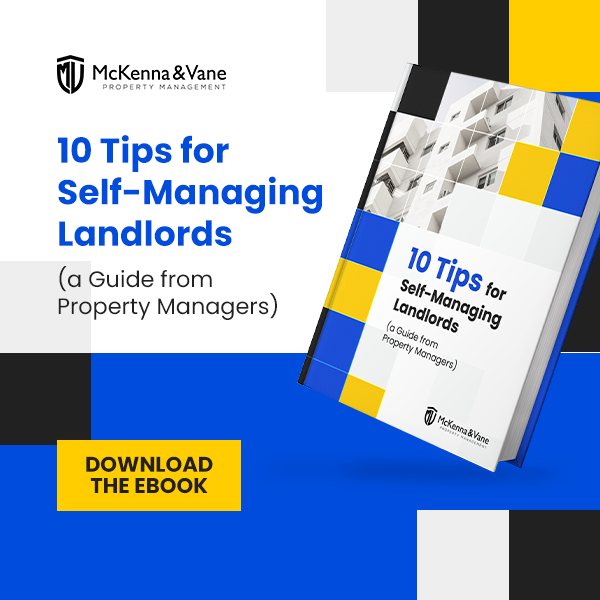Holdover Tenant

One of the worst fears Maryland landlords have is thinking that their tenants will leave before their fixed term is over. However, at times, tenants may choose to continue staying even after their lease has ended. In most cases, it's a landlord's mistake to let said tenant stay without renewing their lease.
A holdover tenant is one that has stayed beyond their lease term. If you continue accepting rent, the tenancy will continue and will automatically become month-to-month. The tenant will continue renting your property at the same terms and conditions as before.
In today’s blog, we’ll provide answers to commonly asked questions regarding holdover tenancies.
What Issues Can Arise in a Holdover Tenancy?
A number of issues can arise by letting your tenant continue renting your property after their lease is up. They are as follows.
• Laws for holdover tenants and actions taken for other landlord-tenant disputes aren’t the same. Therefore, make sure you have familiarized yourself with the local laws.
• Getting rid of a holdover tenant isn’t exactly a walk in the park. You’ll have to go through the state’s eviction process to get rid of them. Which, may take you anywhere between three and five months. It can also take longer if the tenant files an appeal or requests a continuance.
• You won’t have control over when there is a tenancy. The holdover tenant could choose to move out at a time when finding a tenant may not be easy, leaving you with a vacancy.
• There is a risk of property damage. Generally speaking, the more a tenant stays, the more property damage they cause
• You may not be able to change the terms of the lease, such as raising rent for as long as the tenant stays
What Should a Landlord Do When Dealing with a Holdover Tenancy?
As a landlord, there are two ways in which you may be able to handle a holdover tenancy.
.jpg)
Firstly, you may choose to allow the tenant to stay. If you’ve had a great tenant, it may be worthwhile to let them continue renting the property. And all you’ll have to do is continue accepting rent payments for the holdover tenancy to hold.
Secondly, you may choose to evict them from your rental property. In Maryland, landlords have a legal right to evict a tenant for the following legitimate reasons.
• Nonpayment of rent
• End of lease
• Absence of a lease
• Violation of the lease
Each of these reasons requires that landlords follow a specific eviction process. When it comes to evicting a holdover tenant, the following is a step-by-step process that you must follow for the process to be successful.
Step 1: Serve the tenant with an appropriate eviction notice
Since a holdover tenancy is technically a month-to-month tenancy, you must serve the tenant with a 30-Day Notice to Quit to end the tenancy. This will allow the tenant a maximum of 30 calendar days to move out. If the tenant fails to move out within this timeframe, you can continue with the process.
Step 2: File a lawsuit in the District Court
This is the next step you must take in a Maryland tenant eviction process. You must file a complaint in the District Court where your rental unit is located. This will cost you about $46 in fees.
.jpg)
Next, after successful filing, the court will issue you with a copy of the summons and complaint. This will need to be served on the tenant by either a sheriff or constable before the day of the hearing.
Step 3: Attend the court hearing
Except for hearings involving nonpayment of rent issues, Maryland doesn’t specify when a hearing will be held for other types of evictions.
Make sure to bring as much evidence to the court as possible, including a copy of the lease agreement. With the tenant not having a contractual lease agreement, the judgment will mostly tilt in the landlord’s favor.
Step 4: Eviction of the tenant
Once the judgment is in your favor, the court will issue you with a Writ of Restitution. This will be the tenant’s final notice to leave the rental unit. The writ affords them an opportunity to remove their belongings before being forcibly removed by either the sheriff or constable.
You’ll have a maximum of 60 days to order the writ from the judgment date or else it could expire.
What Must a Landlord Not Do When Evicting a Holdover Tenant in Maryland?
In Maryland, the only way you can evict a tenant is by obtaining a court order. Trying to evict a tenant in any other way will automatically fail and the tenant may even sue you for damages. The following are examples of eviction tactics that you must not engage in.

• Using “self-help” eviction tactics. No matter the situation, you must not try to evict a tenant by shutting off their utilities, changing the locks, or removing their belongings. The tenant must always be safe.
• Evicting a tenant for retaliatory reasons. It’d be illegal for you to try to evict the tenant as retaliation for exercising a legally protected right. For instance, because of their participation in a tenants’ rights organization, filing a lawsuit against you, or complaining to local authorities about habitability violations.
• Evicting a tenant because of their race, religion, sex, color, nationality, disability, or familial status. Maryland fair housing laws require landlords to treat their tenants fairly and equally regardless of such classes.
How Can Landlords Avoid Holdover Tenants?
You may be able to avoid holdover tenants by doing the following.
• Remind your tenant whenever their lease is coming to an end. Advisedly, do so at least 60 days earlier.
• Send them another reminder at least 3 weeks before the end of the lease reminding them of the move-out requirements
• Once a tenant overstays the term of the lease, don’t accept a rent payment. Doing so will grant them legal authority to continue staying.
Bottom Line
Now you know everything there is to know about a holdover tenancy in Maryland. If you have a question or need expert help in managing your rental property, McKenna & Vane Property Management can help.
We’re one of the best property management companies in Maryland. Get in touch to learn more!
